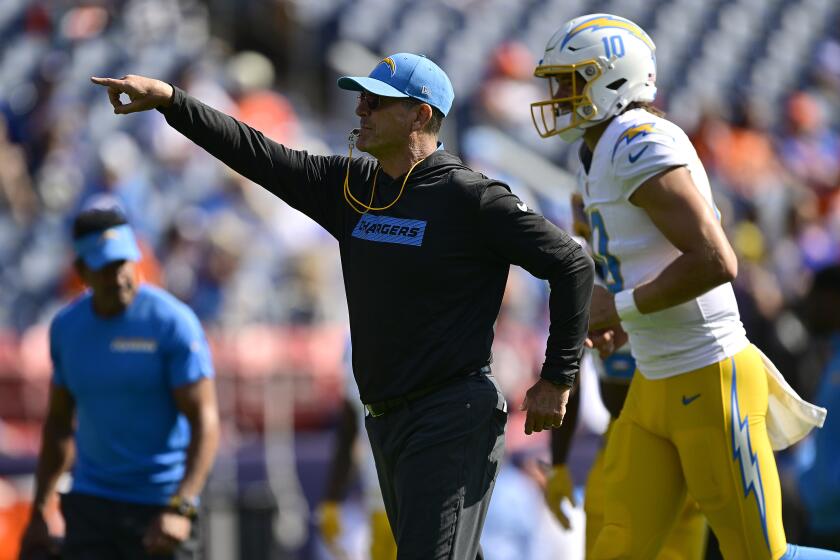Commentary: Why girls need fathers as they develop
Can a woman raised without a father feel psychologically whole?
The question came to mind while watching the funeral service for Whitney Houston several months ago. A beautiful, gifted woman, she rose to incredible heights, only to jettison her career and future for a loser. Irreparably damaged by a ruinous 15-year marriage, she could never recover the unique gifts that made her a star.
Houston’s death at age 49 was attributed to alcohol and drugs. It was as troubling as the tragic death of Marilyn Monroe 40 years ago.
The lives and the deaths of both women share a common thread. Both had absent fathers.
Houston lived with her mother after age 13, when her parents divorced. Monroe’s mother was unmarried and institutionalized much of her life. Monroe was raised in an orphanage or foster home without either of her parents.
Modern feminists discount and devalue the importance of men in the lives of women. They deny that women need husbands and families or that children need fathers. Their argument that it takes a village to raise a child is both specious and false. From outward appearances, history would suggest the country and the culture were in far better shape when children were raised with both parents in the home.
The loss of a parent through death or divorce in childhood or adolescence has profound effects on mood, mind and metabolism. Studies in the medical literature have shown that adults who have suffered the loss of a parent during childhood have an increased rate of depression, morbid obesity and premature heart disease.
The mother envelopes her nursing infant in a protective physical cocoon. This promotes optimal neurophysiological development. The infusion of love also strengthens the nascent immune system because breast milk is laden with maternal antibodies.
But mother is only half of the parental couple, and her love is not enough for optimal psychological development. It requires both halves to make the psyche whole. With his greater size and strength, the father’s physical presence confers a sense of protection and security. He makes the world feel safe.
The effect of the father’s absence is both striking and profound in girls. Without her knight in shining armor to safeguard her, she is left unprotected and vulnerable. Without his guidance, she remains an innocent about men. Without his adoration and love, she lacks both validation and affirmation. She is left to question her own value and worth. Without his contribution, she is incomplete. Without the father, a girl or young woman lacks psychological wholeness.
Translated into everyday terms, she has little self-confidence, self-worth or self-respect. She might be beautiful and bright and but feel ugly and dumb. She sees herself as a loser and behaves as if she were one. She is driven to achieve wholeness through men, clothes, grades, money, titles and possessions. Her efforts generally fall short. She is left still feeling like an unwanted ugly duckling, a very sad, unwanted ugly duckling.
Fathers provide essential intellectual stimulation for their daughters. They discuss issues about the world outside the home. They broaden her horizons and awaken her curiosity. He encourages her to use her mind and to explore. He validates her personhood, her identity, her sense of her self.
In his absence, she faces an almost overwhelming task, tantamount to constructing the Empire State Building all by oneself with a set of Legos. If she is fortunate, she may find a husband with whom she can experience wholeness and children in whom she find fulfillment. If she is less fortunate, she may find some surcease in work.
If she is even less fortunate, she may be counted among the endless numbers of mothers on welfare, in homeless or battered women’s shelters, in addiction treatment centers, in prisons or in morgues. This is a devastating outcome of an endemic social illness.
The decline in marriage and motherhood in this country since the mid-20th century and the rise of feminism may well be symptoms of the same phenomenon. It is not unexpected to learn that several of the leading radical feminists of the 1960s are fatherless themselves. Gloria Steinem stayed single until her 60s and lamented how much she had missed when she finally married. Her infamous dictum that a woman needs a man like a fish needs a bicycle was proved false by its own author.
One has to wonder if the angry protests and the radicalism were born out of loss, hopelessness and despair. Would feminism exist if Gloria, Bella and their acolytes were not fatherless? Would my life have been different if my father had died only 20, not 60 years ago? It most certainly would, and I’m certain Gloria, Bella and all my sisters would agree.
R. CLAIRE FRIEND is a medical doctor who lives in Newport Beach.
All the latest on Orange County from Orange County.
Get our free TimesOC newsletter.
You may occasionally receive promotional content from the Daily Pilot.



